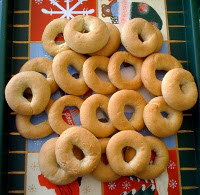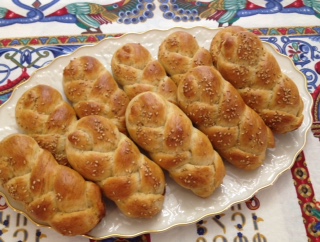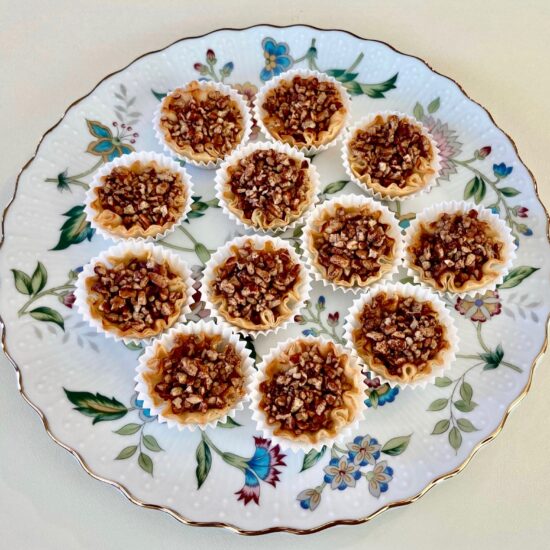It doesn’t matter which way you spell it, but please: Pronounce it “fee-low.”
“Phyllo” means leaf in Greek. In culinary terms, fillo is a paper-thin pastry dough that’s used in an array of recipes ranging from appetizers, entrees, and desserts.
The good news is that fillo dough is a healthy substitute for pie crust or puff pastry because it is low in fat, sodium and calories, and has no trans fat or cholesterol.
Working with fillo dough:
The manufacturers of commercial fillo dough recommend the following techniques for working with the sheets of dough:
1. Allow the frozen dough to thaw at room temperature in the wrapper for about 2 hours before using.
Thaw in the refrigerator overnight, and remove it from the refrigerator when you begin to prepare the filling ingredients.
2. Remove the rolled dough carefully from the box; unroll it, and lay it on a clean, flat surface.
3. Cover the dough with plastic wrap, THEN, a damp towel.
(NOTE: If you don’t place the plastic wrap on the dough first, it will become one soggy mess!)
4. Keep dough covered until ready to use, as the sheets will become brittle very quickly, and will be impossible to use.
What can you make with fillo dough?
The Greeks use fillo dough to make baklava, spanakopita (spinach pie), and tiropita (cheese-filled triangles) – those are known as cheese boregs in Armenian circles.
Other classic Armenian recipes which use fillo dough include paklava (somewhat lighter than the Greek recipe) and boorma, same ingredients as paklava, but it’s lighter and has a unique shape.
 |
| Phyllo stuffed with Kufteh filling |
 |
| Apple-phyllo boregs |
Don’t limit yourself to the few recipes I just mentioned . Use your imagination! You can make strudels, napoleons, tarts, pot pies, and even pizzas using fillo!




